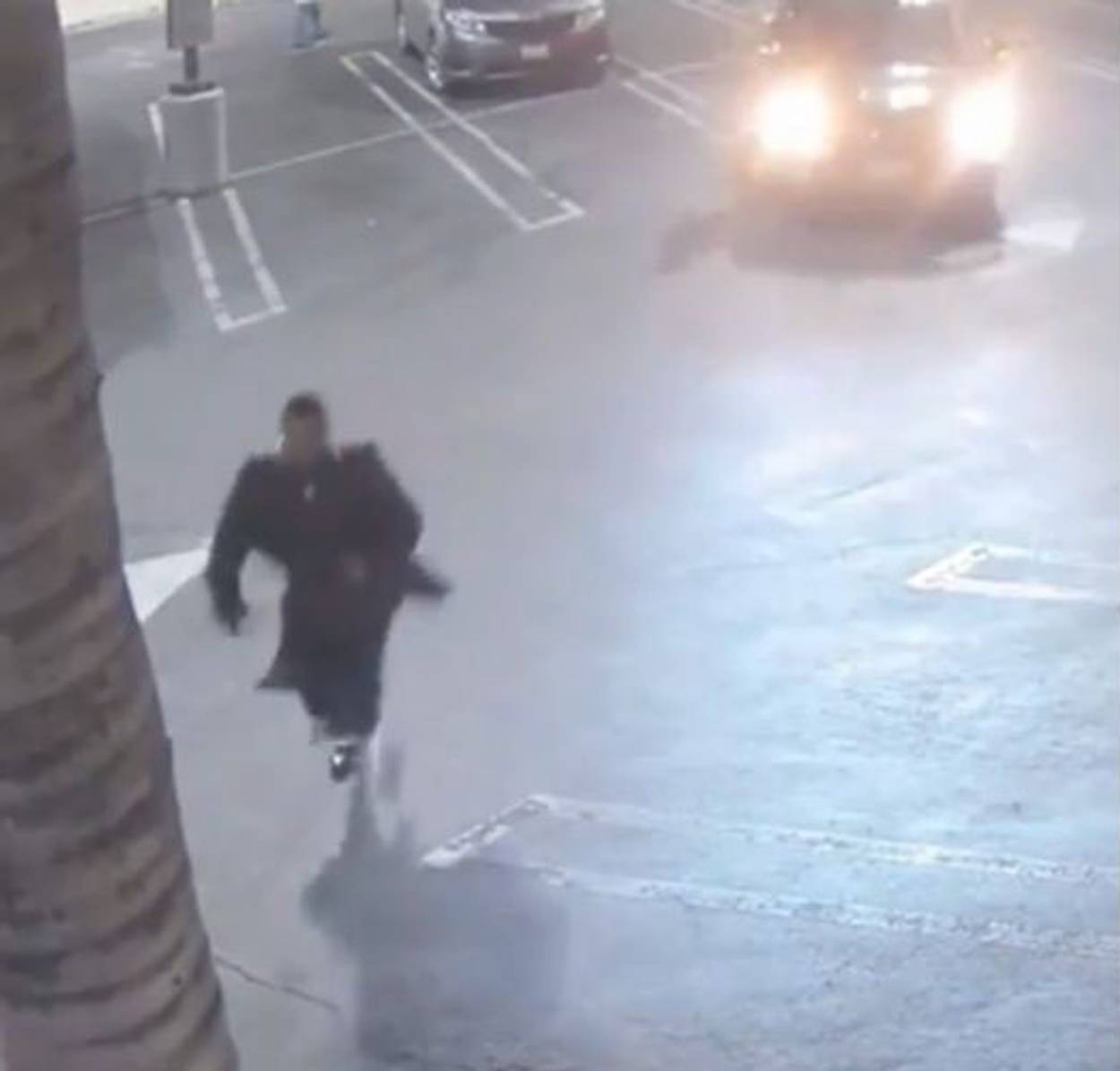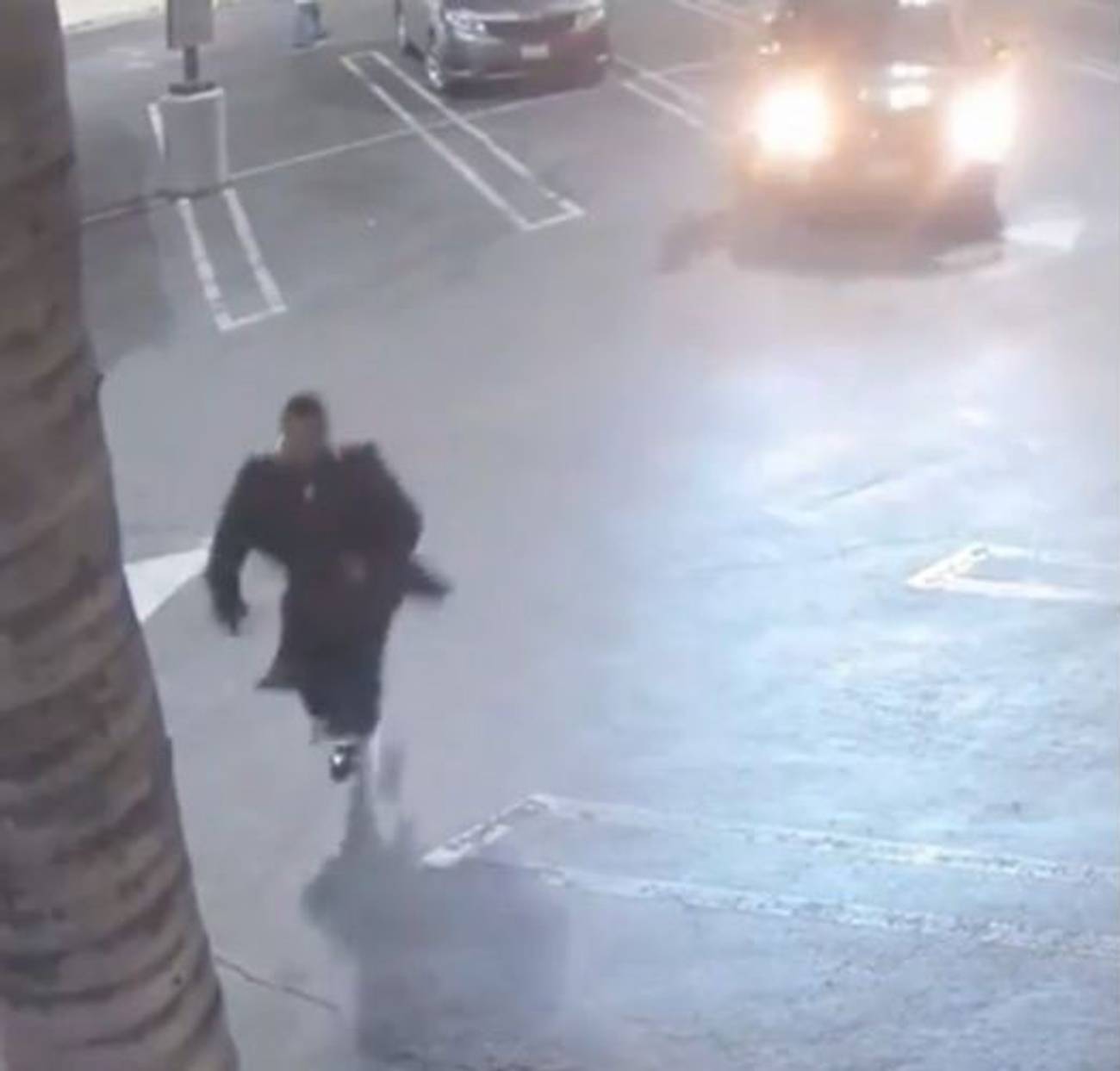Another Long, Hot Summer of Antisemitic Violence Begins in LA
Attacks on Jewish Angelenos surged in 2019, spiked last summer, and appear to be roaring back




While the West Coast couldn’t be more geographically remote from the Israeli-Palestinian conflict, the experience of the past few weeks has shed new light on the vulnerability of Jewish neighborhoods in Los Angeles. From physical assaults to reports of young men yelling racial slurs at Jewish residents during Shabbat, high-profile antisemitic attacks increased this month in the City of Angels. On May 18 during Shavuot, five people were injured at a sushi restaurant in the Orthodox neighborhood of Fairfax-La Brea. Later that night, a driver waving Palestinian flags tried to run over a Jewish resident who was walking home from a service.
The increase in antisemitic violence in Los Angeles began long before the fighting started in Gaza. Antisemitic incidents in Los Angeles surged in 2019, and again during the Black Lives Matter events of 2020, when BLM-associated rioters and looters tore through Jewish businesses, institutions, and synagogues in Fairfax-La Brea this time last year.
With the increasing use of round-the-clock private security organizations such as Magen Am, Jewish Angelenos can’t help but wonder: Is the city changing from a Jewish haven to a hot zone? Ask Mher Hagopian, whose passion is to take pictures of people’s most joyful days. Hagopian is a wedding and event photographer, specializing in baptisms and other religious events and catering to the Lebanese Armenian Christian community of Los Angeles. On Tuesday, May 18, he was having dinner at a restaurant with his friend, a groom-to-be, at Sushi Fumi, a nonkosher fusion restaurant located on La Cienega Boulevard in West Hollywood.
“We were having dinner outside and 20 people in cars were cursing customers,” Hagopian remembered. “They started throwing glass bottles at us and hit my friend on the head. I asked them to stop, and three men became 15, running towards me. Everybody stopped their cars and a big guy started kicking my friend’s face—Shahab, who is about to get married. It started to be very ugly, so I fought back.”
The groom-to-be was able to get back on his feet, “but three guys came on me and attacked me and that’s when the video started being recorded.” The assailants, who brandished Palestinian flags, started shouting antisemitic slurs. The scene was filmed by several witnesses and went viral within a few hours. Hundreds of pro-Palestinian social media users shared it to encourage more violence. Five people were injured, and police have since arrested two suspects. According to a statement from the Los Angeles Police Department, detectives will recommend hate crime charges.
Los Angeles Mayor Eric Garcetti, who is of Jewish ancestry, assured Los Angeles Jewish leaders last summer that he would not direct city funds to BLM in light of the riots, even as he pushed for a $150 million cut to the LAPD’s budget—meeting one of BLM’s demands. In November, BLM’s Los Angeles chapter lobbied the Biden transition team not to consider Garcetti for a cabinet position.
After last summer’s violence, the Jewish community in Los Angeles has been gearing up for an escalation for months. Leibel Mangel, director of Magen Am’s veterans program, served in the IDF from 2013 to 2015. He recalls the summer of 2020 as particularly dangerous and fears new waves of attacks.
“Last year, the starting point was the neighborhood of La Brea, but many other neighborhoods are rather unsafe nowadays, such as Hancock Park,” he explained. (Some 20% of Hancock Park’s population are Orthodox Jews, including a large and visible population of Hasidic residents.) Last summer, Magen Am started training American Jewish veterans to join the Jewish community’s security training program, in order to hire more security staff for synagogues, schools, community centers, and kosher restaurants.
“We added another step to that this year: We now have a full-time security armed patrol in the Jewish community and vehicles driving around with IDF veterans,” Mangel explained. A dispatch online that is now available to report suspicious activity receives on average a dozen calls per week. “Since last week, we have been getting up to seven calls a day,” he said.
Last week, Magen Am helped police identify and arrest two youngsters who were driving around the neighborhood and harassing the local Jewish community. Yossi C., who was attacked last Shabbat, had been walking back to his house. “Two driving teenagers started screaming ‘Fuck you Jews’ and as I was trying to get their license plate and make them repeat what they said, they screamed ‘Heil Hitler, free Palestine.’”
Yossi, who declined to reveal his last name for reasons of personal safety, described the young driver who “got one step outside of the car and said, ‘I’m not going to do this in front of your wife and your child, but otherwise I would beat your ass.’”
I always thought the United States was a few steps ahead of England and Europe, so it is disappointing to see that this country is going in the other direction.
A Manchester native, Yossi moved to the United States five years ago, thinking “it was better. I always thought the United States was a few steps ahead of England and Europe, so it is disappointing to see that this country is going in the other direction.”
Like numerous Jews in the neighborhood, Yossi believes that social media is used as “an evil force” to encourage, incite, organize, and normalize attacks.
According to Francky Perez, a representative of the National Bureau for Vigilance Against Anti-Semitism, “It is ironic that Israel was praised last month for its excellent coronavirus management and is now being shamed for its policy with Gaza.” According to Perez, his own bureau’s statistics show that antisemitic crimes increased by 40% in Los Angeles in the month of May.
A Paris transplant who has been living in the United States for more than 20 years, Mr. Perez said that although antisemitism has always existed in the United States, 2021 has taken a new turn. “The wind is changing,” he said. He seemed especially worried for the new generation, which receives its news from social media accounts that often combine inflammatory hot-button content with social shaming, heated invective, and a reckless disregard for the truth. Since the beginning of the most recent conflict between Israel and Hamas, nearly 200 antisemitic incidents have been reported across the United States.
Annabelle Azadé is a journalist based in Los Angeles. She has reported from Bangkok, New York, Tel Aviv, London, and Paris.